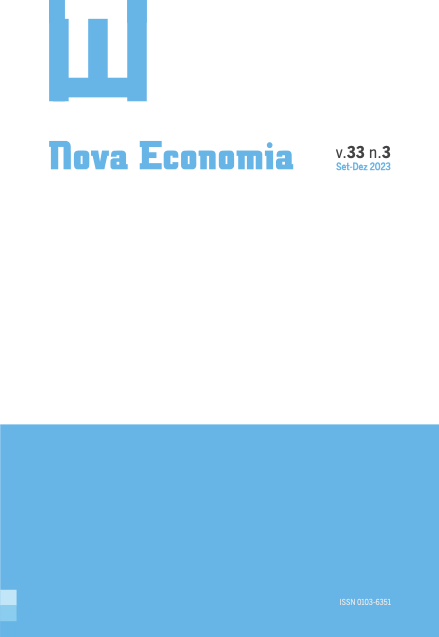Impactos socioeconômicos da cadeia produtiva do biodiesel na agricultura familiar dos estados brasileiros do Rio Grande do Sul (RS) e do Mato Grosso (MT)
Resumo
Este trabalho tem o objetivo de avaliar os diferentes impactos socioeconômicos do setor do biodiesel na agricultura familiar e demais setores da economia dos estados do Rio Grande do Sul e do Mato Grosso, que são os maiores produtores de biodiesel no Brasil e possuem diferenças estruturais e regionais. Utilizou-se como base metodológica a Teoria de Insumo-Produto para mensurar os efeitos diretos e indiretos nas ocupações geradas e no Produto Interno Bruto (PIB). Os resultados indicam que a produção de biodiesel via agricultura familiar no Rio Grande do Sul é 66 vezes àquela no Mato Grosso, gerando aproximadamente 19 mil ocupações, que é explicado pelo maior desenvolvimento do setor agrícola gaúcho. Na comparação com o diesel fóssil, um milhão de barris equivalentes de petróleo (bep) de biodiesel familiar no Rio Grande do Sul gera 7,7 mil ocupações, enquanto na rota fóssil gera 1,6 mil ocupações.
Downloads
Publicado
Como Citar
Edição
Seção
Licença
Copyright (c) 2023 Pedro Gilberto Cavalcante Filho, Antônio Márcio Buainain, Marcelo Pereira Cunha, Gabriela Solidario de Souza Benatti

Este trabalho está licenciado sob uma licença Creative Commons Attribution 4.0 International License.
Autore[a]s que publicam nesta revista concordam com os seguintes termos:
- Autore[a]s mantém os direitos autorais e concedem à revista o direito de primeira publicação, com o trabalho simultaneamente licenciado sob a Licença Creative Commons Atribuição 4.0 Internacional que permite o compartilhamento do trabalho com reconhecimento da autoria e publicação inicial nesta revista.
- Autore[a]s têm autorização para assumir contratos adicionais separadamente, para distribuição não-exclusiva da versão do trabalho publicada nesta revista (ex.: publicar em repositório institucional ou como capítulo de livro), com reconhecimento de autoria e publicação inicial nesta revista.
- Autores têm permissão e são estimulados a publicar e distribuir seu trabalho online (ex.: em repositórios institucionais ou na sua página pessoal) a qualquer ponto antes ou durante o processo editorial, já que isso pode gerar alterações produtivas, bem como aumentar o impacto e a citação do trabalho publicado (Veja O Efeito do Acesso Livre).




